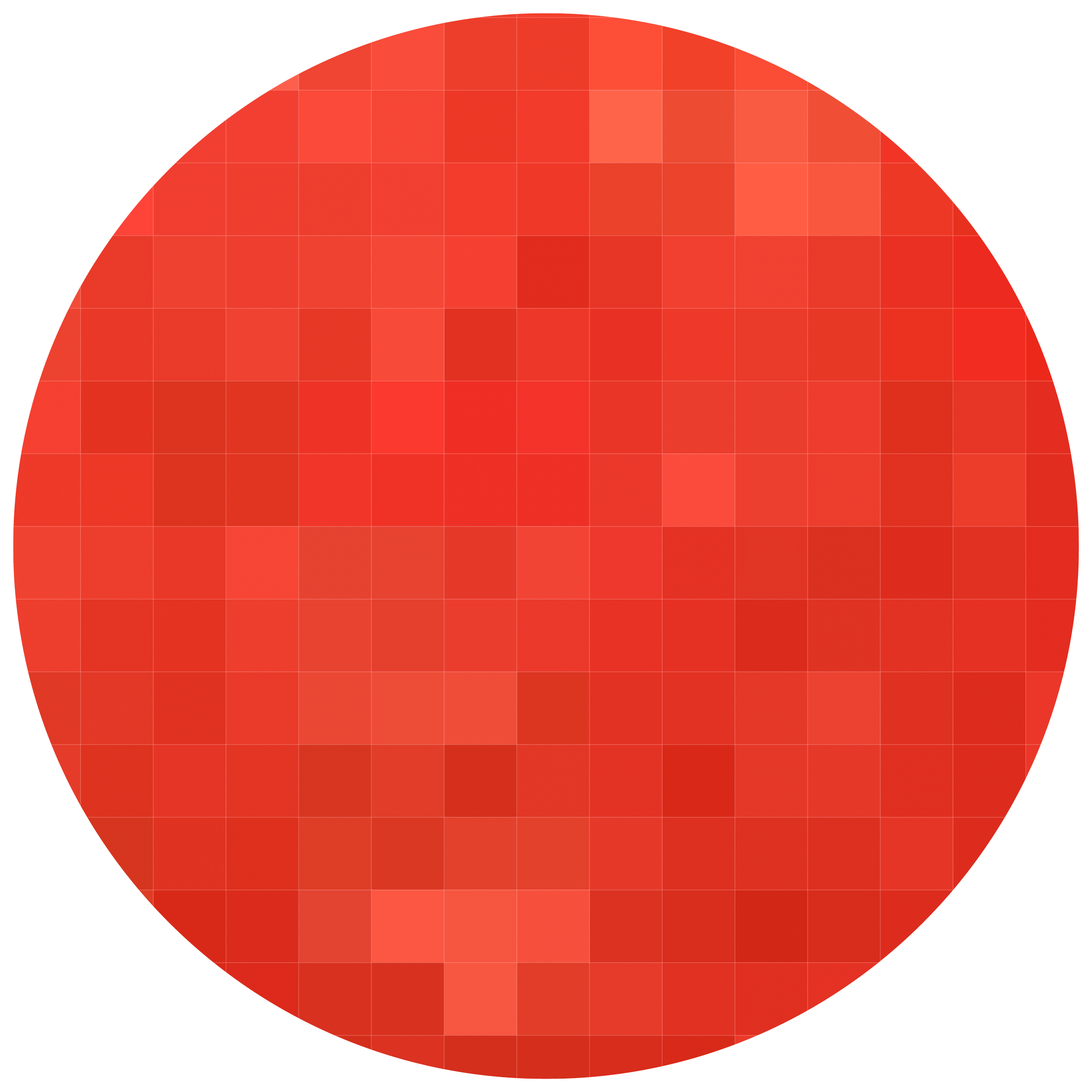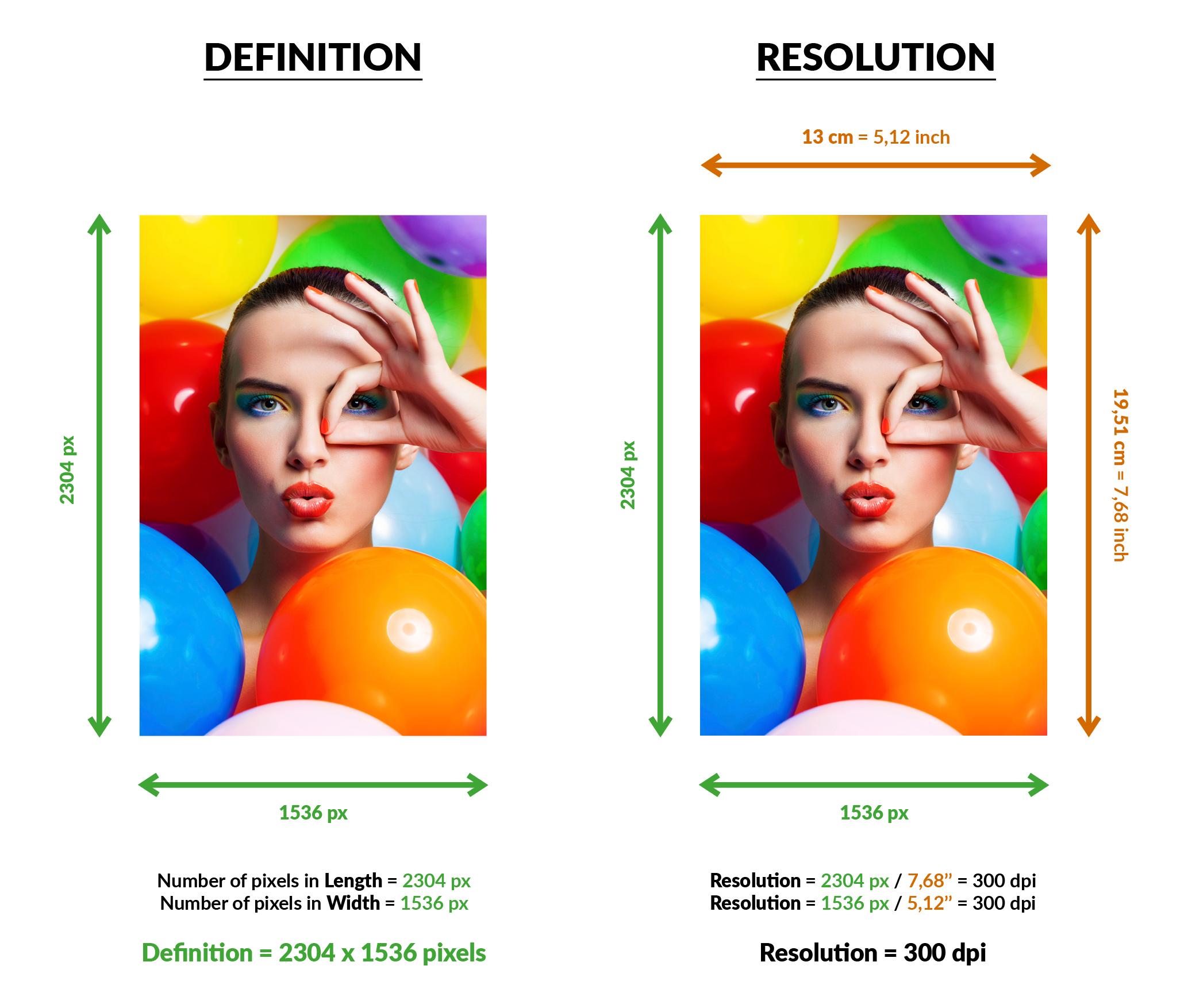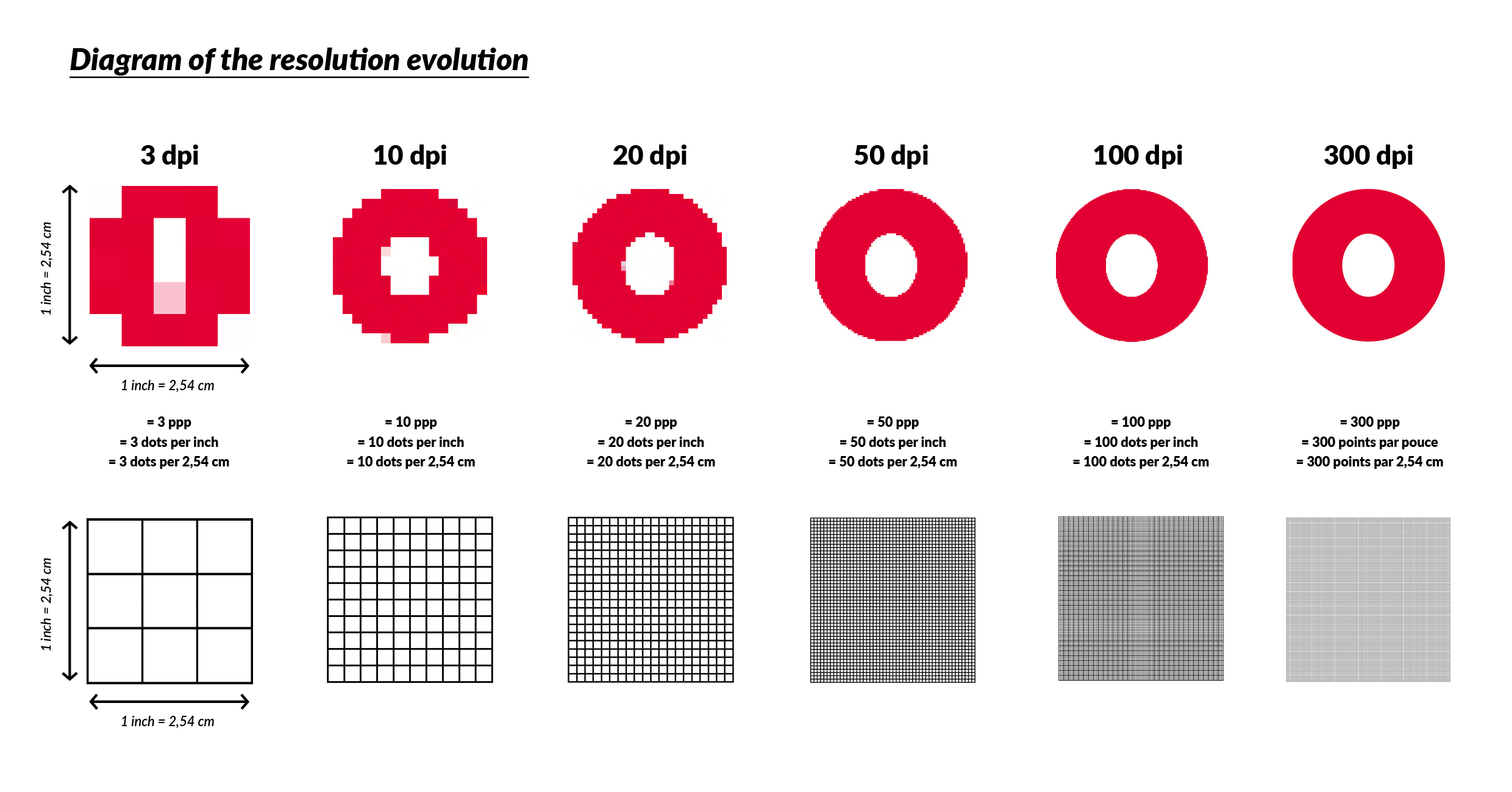Help / File quality
In the process of preparing files for print, it is important to ensure that the size and resolution of your image is sufficient for the print run you wish to make. In order to do this, you need to rely on the information contained in your file and examine/control the following concepts :
The concept of file quality
The quality of an image file is based on three parameters: definition, size and resolution..
An image file is composed of pixels. The pixel (picture element) is the smallest element of your image, its quantity defines the amount of information contained in your file. Each pixel is a square representing a single colour.

Definition
The definition is the number of pixels in your image, in width and height. It is the numerical size in pixels of your file, it has no fixed dimension, nor size.
It is formulated as follows :
Number of pixels (on the Length) x Number of pixels (on the Height)
To find out: on a PC, right-click on the file and select "Properties"; on a Mac, right-click on the file and select "Read information".
Size
The size is the size of the printed image. It is expressed in units of measurement, usually cm.
Resolution
Resolution is the relationship between definition and size: it expresses the pixel density of your digital image file, i.e. the number of pixels per unit length. There are several units to describe resolution: point par pouce (ppp), pixels per inch (ppi), or dots per inch (dpi), but it is customary to indicate resolution in dpi (dot per inch).

The higher your resolution value, the greater the pixel density for the same area of 2.54 x 2.54 cm and thus the more detailed your print will be.

Easily estimate the normal print size for your image
The normal print size is the value in centimetres, length and width that you will be able to obtain when printing your file, without modifying these characteristics (without interpolation for example), it is the optimal correspondence between the number of pixels contained in your file and its physical rendering.
To find out the normal print size that can be achieved with a file, a very simple calculation can be applied :
Size in pixels /100 = dimension in cm
Thus, for a photo with a size of 4000 px in width and 3000 px in height :
4000 / 100 = 40 cm
3000 / 100 = 30 cm
The optimal printing format for your file will therefore be 40x30 cm. This corresponds to the format you would have at 300dpi with a very slight enlargement (120%).
In summary :
Your file, intended for printing, should be examined with regard to the following quality criteria :
- Its definition
- Its size
- Its resolution
You can get an estimate of the optimal print size of your file by following this calculation :
Size in pixels /100 = dimension in cm* *Repeat the operation in length and width
Find the definitions of the technical terms used on this page in our glossary.